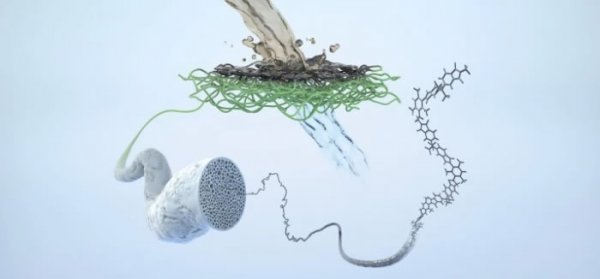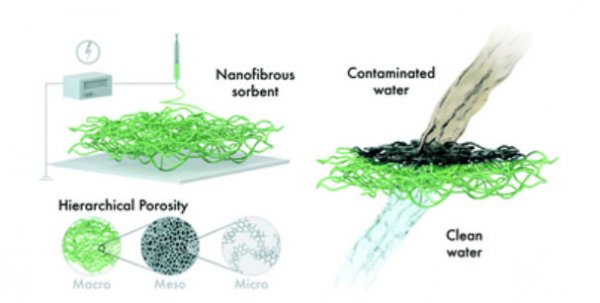According to foreign media reports, large-scale oil spills such as the 2010 Deepwater Horizon disaster have caused tremendous damage to the environment, so scientists all over the world are exploring new ways to control this chaos. The latest result of these efforts is a recyclable mat developed by scientists at King Abdullah University of Science and Technology (KAUST) in Saudi Arabia. The creators claim that the mat can absorb oil efficiently and can be used repeatedly.

The technology uses a polymer called 6FDA-TrMPD as a starting point, and due to its high porosity, it suits the team's goals. Starting from a polymer solution, the team uses electrospinning technology to make it into a strong cushion. This technology involves attracting liquid through an electric field. We have seen this technology used to make various things, from preventing the dissolution of HIV New capsules from tampons to health food supplements.
In this case, it enabled the team to turn the polymer solution into a highly porous pad with a surface area of ​​565 square meters per gram of material. In addition, the hydrophobic trifluoromethyl group is also integrated in the structure, which enables the material to strongly absorb oil and other liquids while repelling surrounding water.
The team tested its mat in the laboratory and found that within just a few minutes of deployment into the sample, it can quickly absorb 25 to 56 grams of oil per gram of polymer material. According to the team, this puts it ahead of many similar adsorbents, and being able to reuse it is another powerful advantage.
"The adsorption performance of this material is much better than many reported adsorbents, and the material can be recycled and reused with similar performance, which shows that it has great potential in cleaning up oil spills and non-polar solvents." Research author Fuat Topuz explained.

Researchers are exploring how to use sustainably sourced polymers to make cushions and how to optimize them to deal with other pollutants, such as heavy metals. They are also studying other shapes that the material can take. "In the next step, we will further process these materials to create membranes and fiber sponges, making them easily recyclable adsorbents while retaining their high performance," said study author Gyorgy Szekely.
The research was published in the journal "Environmental Science Nano", and you can see a demonstration of the material in the video below.
Non-Medical Disposable Masks,Custom Face Mask,Custom Dust Face Mask,Kn95 Face Mask
GULF STAR MEDICAL MANUFACTURING FZE , https://www.gulfstarmedical.com